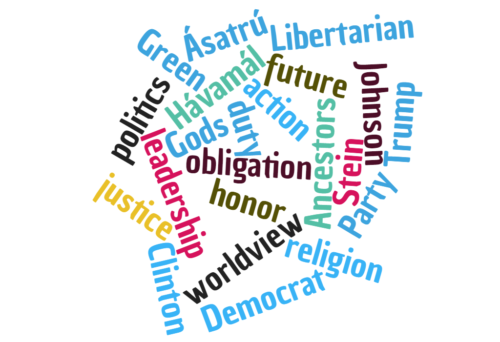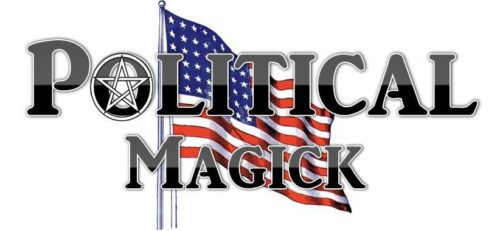TWH – Today is election day in the United States, voters are headed to the polls to decide who will be their president for next four years. This 2016 race has been contentious, to say the least, and unique in many ways. Republican nominee Donald Trump is reportedly the first presidential candidate without any formal political experience to reach this point in the process since Dwight Eisenhower. Democratic nominee Hillary Clinton is the first female presidential candidate to make it to this point. In addition to trivia such as those, the 2016 presidential campaign has been surrounded by divisive rhetoric, accusations of misconduct and criminal activity, and a host of other often shocking public displays.
But today is voting day and the decision will be made.
Here is a round-up of TWH articles focused on the 2016 presidential race. From media frenzy to political magic, we present this “one stop shop,” looking back at politics, voting, and the specifics of the campaign process.
![[Photo Credit: Vox Efx / Flickr]](https://wildhunt.org/wp-content/uploads/2016/11/3002776434_643d076694_b-500x375.jpg)
[Photo Credit: Vox Efx / Flickr]
Then in March, we examined the trending stories that placed occult practice at the center of political life. In Astrology and Metaphysics in the White House, journalist Cara Schulz reports on the historical use of divination at the national level. Schulz writes, “There hasn’t been any mention of Hillary Clinton continuing to consult with psychics or mediums since the mid-1990s. Has public opinion changed on metaphysics in general and White House consultations in particular? Would a revelation, similar to the one about Nancy Reagan, spark a media storm or a yawn? What about other forms of divination like tarot?”
While there may not be recent reports of Clinton engaging directly with readers, connections have been made between Clinton and the practice of Witchcraft. These connections are entirely different than those made in the 1980s. For example, in March, we reported on the popular use of the slogan “Bern the Witch.” Created by New Jersey pizzeria owner Joe Smith, the slogan went viral and, as noted, ended up with a number of different meanings, including “Bernie Sanders, the Witch” and “Burn the witch.”
At the time, Mr. Smith said, “I’m not criticizing [Hillary Clinton] because she’s a woman, her policies and her career are disastrous for working people. […] If people wanna look at it one way or another they can. I’m looking to win.[…] I think we need to be on the offensive.”
The connections being made between Clinton and the occult have only continued through November, both in support her candidacy, as well as serving as derogatory slurs exemplified best by Smith’s campaign.

In early summer, after the attack on the Orlando LGBTQ+ nightclub, columnist Heathen Chinese re-framed the summer’s political rhetoric, asking, “How are sides of war delineated?” His question was timely as the race to earn a party presidential nomination began to heat up. In Against the Leviathan, Heathen Chinese concludes, “It wasn’t just an attack by one leviathan against another. It was an attack on human beings, on human community, on dancers, on ‘kinship and community,’ on those who ‘still have an ‘inner light,’ namely an ability to reconstitute lost rhythms, to recover music, to regenerate human cultures.’ ”
As the summer continued, the major parties held their national conventions in order to announce their nominees. Over a nice mojito, columnist Manny Tejeda-Moreno discussed these massive political gatherings, calling them “spectacles of power” that offer “insight into the American political machinery.” In Panem et Circenses, he concludes:
The recent political conventions also showed me why they are attempts at magic but fail to be magical. Conventions are triangles: they look like ritual but lack the circle. Conventions are designed as giant megaphones to change perception. But despite the rhetoric of community and the people, the pageantry and power are all top-down. They are voices on a stage cast into a receptive audience. There is no balance, only lip service to it.
Then, in mid-August, we looked at religion, in general, within the 2016 political race, including demographics and party positions. As Pew Forum reported, “the candidates’ religious beliefs are of decreasing interest [to the American population].” However, “their position or their party’s position on religious freedom [remains] a vital part of the campaign process. Religious freedom was and is still one of the backbones of the American system.”
In Religion and the Presidential Race 2016, we offer a detailed breakdown of the official party positions on religion and religious freedom.
As the summer turned to fall, columnist Karl E. H. Seigfried returned with two articles discussing Heathenry and politics. In late August, he asked seventeen different Heathens the following question, “How does your Heathen worldview affect your view of the presidential election as it now stands?” He then provides the answers in Heathen Worldview and Presidential Politics.

Next in September, Seigfried took a more concrete look at how and where Heathens have been influencing or working in politics. He writes,”Heathenry and politics have not always been happy bedfellows, yet there have been Heathens around the world who have campaigned for public office. Some have even won elections. The thumbnail portraits below feature four Heathens from four countries [Canada, Iceland, Germany, and the U.S.] who have four very different stories of engagement with and disengagement from public life.”
Those portraits are only a small demonstration of the many Pagans and Heathens involved directly in politics. For example, we reported that Matthew Orlando is currently running for U.S. Congress in Michigan. And TWH‘s own Cara Schulz is running for city council in Burnsville, Minnesota. We’ll know those results today as well.
With the election (and Halloween) looming, the mainstream media soon returned to discussions of divination. Who would win? What do “the stars” say? We decided to ask our own community the same questions. In Looking Beyond the Presidential Election: Diviners agree on outcome, three experts performed readings for us. They offered their predictions on the election and the winner’s future as commander-in-chief. That article concludes, “In short, the diviners are predicting a Clinton win, but a rocky road during her term in office.”
Additionally, as the election drew closer, the extreme right-wing political machine churned out more “evidence” of witchcraft being used to influence the election. While there were reportedly several hex actions being staged to influence the race, this was not necessarily what the pundits had in mind.
For example, in an early October article, we noted that Robert Maginnis told Jim Bakker: “I know that there’s demonic forces in that city. I have personally met people that refer to themselves as witches; people that say they advise the senior leadership of the country. You know, we invite within the federal government people to advise us and often some of those advisers, I think, have evil motivations, things that you and I would not approve of.”
This idea of a secret “cabal” of witches controlling the government is different than conversations about, or accusations of, divination practices. While the latter was, and often still is, used to ridicule and demonstrate signs of ineptitude, the more recent occult accusations contain strong religious overtones, paralleling age-old fears of witchcraft.
After noting Maginnis’ comments, the October article goes on to look at just what a politics of Witchcraft might actually be, and concludes:
Should it worry Americans if, someday, Witches became advisers to our political leaders? [Dr. Gwendolyn] Reece, [a D.C.-based Witch and Priestess], doesn’t think so; “I do not believe Maginnis is telling the truth when he says that there are Witches who are high level policy advisers, secretly influencing our politicians. Maybe we should be.
On Oct 29, Dr. Reece joined us as a guest columnist for a more comprehensive article on political magick – what it is and why it is important within her own religious work. She wrote, “I believe we are at a dangerous crossroads in our country, much of which has been laid bare in this election and the competing visions of what kind of country we want to create. I see this current situation in our nation within the context of a greater initiatory crisis for humanity.”
Reece went on to say that there is hope, and that magical people can use their skills to change the world. “This is what many of us have been training for. We understand group souls. We understand thought power. We need to use our skills, as members of the group soul of humanity, and drag our collective consciousness over the threshold of initiation and make sure we don’t fall.”
As part of her essay and as an example of political magick in practice, Dr. Reece provided a ritual for use by both groups or individuals. She says, “I encourage anyone who has the desire to work for the good of our polis to perform this ritual prior to the election and to carry its spirit with you through the election and beyond. Ideals need continuous reinforcement. And of course, please vote.”
 As the country moved into the final weekend before the election, columnist Tim Titus discussed the concept of “voting values.” He begins, “The term “values voters” has long described a specific portion of the American electorate. These voters are understood to express values that stem from their religious views, which are overwhelmingly Christian and socially conservative.”
As the country moved into the final weekend before the election, columnist Tim Titus discussed the concept of “voting values.” He begins, “The term “values voters” has long described a specific portion of the American electorate. These voters are understood to express values that stem from their religious views, which are overwhelmingly Christian and socially conservative.”
Titus then posits that all people vote based on their values, not only conservative Christians. Through interviews, he goes on to prove his point. Titus concludes:
Diversity is good. Monoculture destroys the land. That emphasis on freedom may be what it all really comes down to. Paganism is a religious minority, the members of which have freely chosen to break away from mainstream religions and practice the spiritual tradition that calls to their hearts. The same is true in their voting choices, which is a positive, extremely American practice. In both politics and spirituality, Pagans around the country are standing tall for that one very American common value: freedom.
On that note, the 2016 TWH political article train comes full circle. In January, Siegfried posited that politics and religion cannot and should not be separated. In November, Titus does the same, demonstrating that Pagans and Heathens vote on values strongly rooted in their unique religious beliefs.
That brings us to today – voting day. The story has not yet been written. Join us tomorrow for a look at the election results, as we bring you reactions from around the country.
The Wild Hunt is not responsible for links to external content.
To join a conversation on this post:
Visit our The Wild Hunt subreddit! Point your favorite browser to https://www.reddit.com/r/The_Wild_Hunt_News/, then click “JOIN”. Make sure to click the bell, too, to be notified of new articles posted to our subreddit.